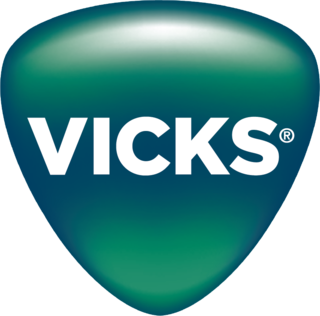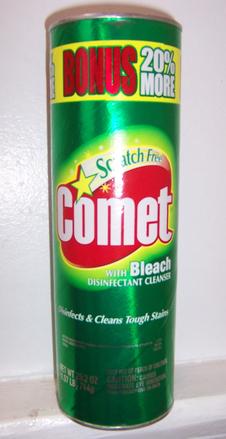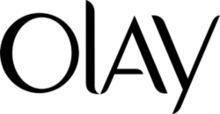
Cosmetics are composed of mixtures of chemical compounds derived from either natural sources or synthetically created ones. Cosmetics have various purposes, including personal and skin care. They can also be used to conceal blemishes and enhance natural features. Makeup can also add colour to a person's face, enhance a person's features or change the appearance of the face entirely to resemble a different person, creature, or object.

Febreze is an American brand of household odor eliminators manufactured by Procter & Gamble. It is sold in North America, South America, Europe, Africa, Asia, Australia, and New Zealand.

Vicks is an American brand of over-the-counter medications owned by the American companies Procter & Gamble and Kaz Incorporated. Vicks manufactures NyQuil and its sister medication, DayQuil as well as other medications in the "Quil" line. Vicks also produces the Formula 44 brand of cough medicines, cough drops, Vicks VapoRub, and a number of inhaled breathing treatments. For much of its history, Vicks products were manufactured by the family-owned company Richardson-Vicks, Inc., based in Greensboro, North Carolina. Richardson-Vicks, Inc., was eventually sold to Procter & Gamble in 1985. Procter & Gamble divested the Vicks VapoSteam U.S. liquid inhalant business and sold it to Helen of Troy in 2015.
Ivory is an American flagship personal care brand created by the Procter & Gamble Company (P&G), including varieties of white and mildly scented bar soap that became famous for its claim of purity and for floating on water. Over the years, the brand has been extended to other varieties and products.

A wet wipe, also known as a wet towel, wet one, moist towelette, disposable wipe, disinfecting wipe, or a baby wipe is a small to medium-sized moistened piece of plastic or cloth that either comes folded and individually wrapped for convenience or, in the case of dispensers, as a large roll with individual wipes that can be torn off. Wet wipes are used for cleaning purposes like personal hygiene and household cleaning; each is a separate product depending on the chemicals added and medical or office cleaning wipes are not intended for skin hygiene.

Ajax is an American brand of household cleaning products and detergents made by Colgate-Palmolive and Awesome Products Inc.

SK-II is a Japanese-based multinational cosmetics brand launched in the early 1980s, based on a compound derived from yeast. It is owned by parent company Procter & Gamble (P&G) and is sold and marketed as a premium skin care solution in East Asia as well as North America, Europe and Australia.
CoverGirl is an American cosmetics brand founded in Maryland, United States, by the Noxzema Chemical Company. It was acquired by Procter & Gamble in 1989, and later acquired by Coty, Inc. in 2016. The Noxell Company advertised this cosmetics line by allowing "cover girls", models, actresses, and singers who appear on the front cover of women's magazines, to wear its products. CoverGirl primarily provides a wide variety of consumer-grade cosmetics.

Comet is an American brand of scouring powders and other household cleaning products manufactured by KIK Custom Products Inc. The brand was introduced in 1956 by Procter & Gamble (P&G) and sold to Prestige Brands in 2001. In 2018, Prestige Brands sold the Comet brand to KIK Custom Products Inc. P&G retained the rights to market the brand in Europe and to the professional market (non-home-consumer) in the United States.

Wella AG is a German company specializing in hair care, styling, colorants, and other beauty products, and was founded in 1880 in Germany by Franz Ströher. Its headquartered in Darmstadt, Germany. The company was controlled by Procter & Gamble from 2003 until it was sold to Coty in 2015 along with some 40 other P&G brands. On December 1, 2020, Coty completed the sale of the Wella, Clairol, OPI and ghd brands stake to American private equity firm KKR for $2.5bn in cash whilst retaining 40% stake in the standalone company.

Noxzema is an American brand of skin cleanser marketed by Elida Beauty. Since 1914, it was sold in a small cobalt blue jar; but is now sold in a blue plastic jar. Noxzema contains camphor, menthol, phenol and eucalyptus, among other ingredients. Originally developed as a sunburn remedy, it is a type of cold cream or vanishing cream which is used as a facial cleanser and make-up remover.
Edward Loughlin Mabry (1897–1989), was an American writer, poet, and chemical tycoon.

Vicks VapoRub is a mentholated topical ointment, part of the Vicks brand of over-the-counter medications owned by the American consumer goods company Procter & Gamble. VapoRub is intended for use on the chest, back and throat for cough suppression or on muscles and joints for minor aches and pains. Users of VapoRub often apply it immediately before sleep.
Noxell Corporation, formerly known as the Noxzema Chemical Company, was a Maryland-based company that made household products. Its best known brands were Noxzema and CoverGirl. In 2016, it became a subsidiary of The Procter & Gamble Company.
Almay is an American cosmetics brand owned by Revlon which markets products toward people with sensitive skin.

The cosmetic industry describes the industry that manufactures and distributes cosmetic products. These include colour cosmetics, like foundation and mascara, skincare such as moisturisers and cleansers, haircare such as shampoos, conditioners and hair colours, and toiletries such as bubble bath and soap. The manufacturing industry is dominated by a small number of multinational corporations that originated in the early 20th century, but the distribution and sale of cosmetics is spread among a wide range of different businesses. Cosmetics must be safe when customers use them in accordance with the label's instructions or in the conventional or expected manner. One measure a producer may take to guarantee the safety of a cosmetic product is product testing. FDA occasionally does testing as part of its research program or when looking into potential safety issues with a product. Both the cosmetics business and consumers can benefit from the FDA's resources on product testing.

Lestoil is a registered trade name of Clorox for a heavy-duty multipurpose cleanser product, used to remove extremely difficult laundry stains, dissolve water-based and oil-based paints, and clean grease, oil, paint, and adhesives from floors and surfaces. It was introduced as a dry cleaning fluid for laundry in 1933. As a company, Lestoil, also known as the Adell Chemical Company, also made Bon Ami, from 1964 until 1971.














